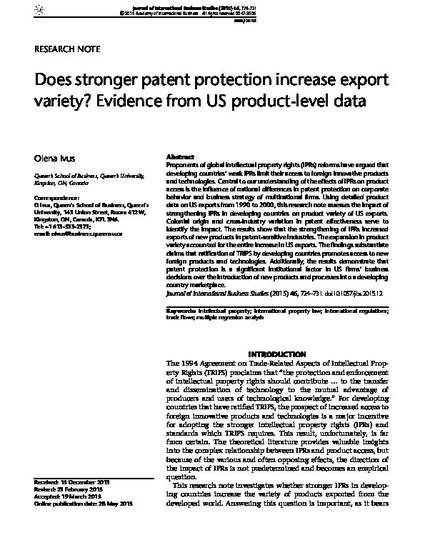
Article
Does stronger patent protection increase export variety? Evidence from U.S. product-level data
Journal of International Business Studies
(2015)
Abstract
Proponents of global intellectual property rights (IPRs) reforms have argued that developing countries' weak IPRs limit their access to foreign innovative products and technologies. Central to our understanding of the effects of IPRs on product access is the influence of national differences in patent protection on corporate behavior and business strategy of multinational firms. Using detailed product data on U.S. exports from 1990 to 2000, this paper assesses the impact of strengthening IPRs in developing countries on product variety of U.S. exports. Colonial origin and cross-industry variation in patent effectiveness serve to identify the impact. The results show that the strengthening of IPRs increased exports of new products in patent-sensitive industries. The expansion in product variety accounted for the entire increase in U.S. exports. The findings substantiate claims that ratification of TRIPS by developing countries promotes access to new foreign products and technologies. Additionally, the results demonstrate that patent protection is a significant institutional factor in U.S. firms' business decisions over the introduction of new products and processes into a developing country marketplace.
Keywords
- Intellectual property; International property law; International regulations; Trade flows; Multiple Regression Analysis
Disciplines
Publication Date
2015
Citation Information
Ivus, Olena. 2015. “Does Stronger Patent Protection Increase Export Variety? Evidence from U.S. Product-level Data.” Journal of International Business Studies, 46(6): 724-731
